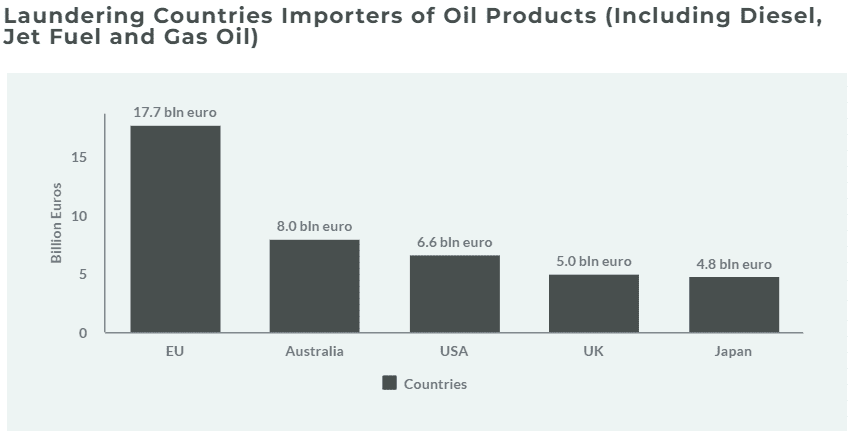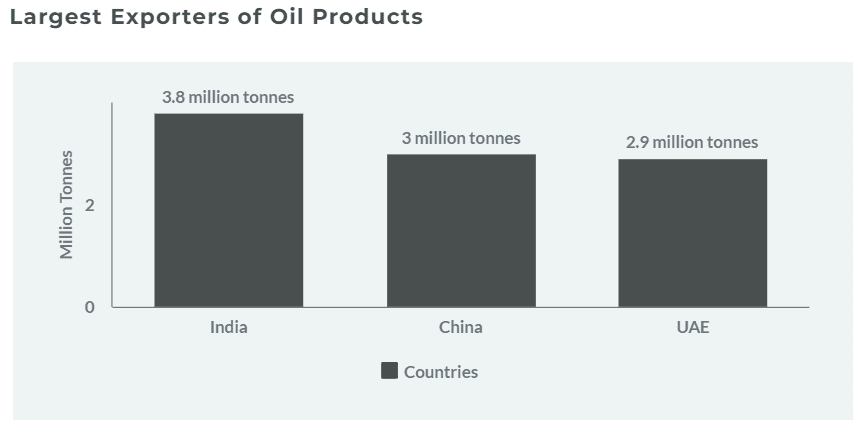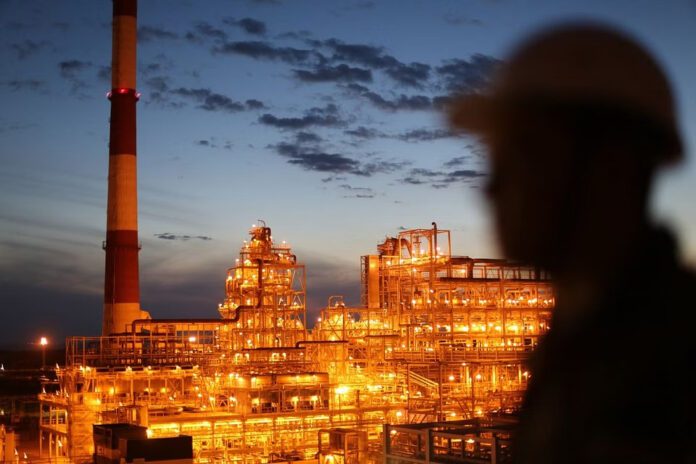Despite Western sanctions against buying Russian oil, price-cap coalition countries have accounted for a majority of the increase in Russian oil exports from laundromat countries.
Following the Russia-Ukraine conflict, the European Union (EU) early this year (Feb 2023) banned the import of oil products from Russia. However, despite Western sanctions against Russia for its role in the Ukraine conflict, rising demand for Russian energy imports by developing countries has helped the country’s economy survive.
These five countries (China, India, Singapore, Turkey and UAE) named as the “Laundromat” countries and led by India, buy Russian oil and sell processed products to European countries, thus sidestepping European sanctions against Russia (Helsinki Report, 2023).

With the Russia-Ukraine conflict entering its second year of full-scale invasion, it’s interesting to note that the EU, G-7 nations, Australia, and Japan, which are all members of the price cap coalition and primarily focused on limiting Russia’s revenues, have all significantly increased their imports of oil products from these laundering nations.

Since the imposition of the crude oil price cap (5 December 2022) up to one year after the invasion (24 February 2023), India (3.8 million tonnes) was the largest exporter of oil products to price cap coalition countries, followed by China (3.0 million tonnes) and UAE (2.9 million tonnes)

As per the Centre for Research on Energy and Clean Air (CREA) report, most oil products were being exported from two ports in Gujarat, India: The Sikka port that services the Reliance-owned Jamnagar refinery, and the Vadinar port that ships oil products from Nayara energies, and partly owned (49.13%) by Rosneft, alleging that this could constitute “circumventing sanctions” imposed unilaterally by the U.S. and Europe.
“The port is of great value to the Russian oil industry, especially Rosneft,” the report said. “This situation where a Russian company owns an oil refinery in a third country highlights a possible way of circumventing sanctions. Rosneft or other oil companies from Russia are free to transport crude oil to Vadinar, where it is refined and can be exported to the price cap coalition countries as oil products from India,” the report concluded.
Referring to the international reports on purchase of “laundered” oil by Europe, businessman Anand Mahindra tweeted that it exposed the “hypocrisy” of the Western countries. “Hypocrisy carries a high price tag…India was transparent about its compulsions from the start,” he said in a tweet, tagging External Affairs Minister S. Jaishankar, who has often criticised European Countries for expecting India to cut its oil imports from Russia after the war.
Given the circumstances, it is abundantly clear that the countries in the price cap coalition have been responsible for the great majority of the increase in oil product exports from laundromat countries since the start of Russia’s invasion, and the trend only seems to be going upward.




